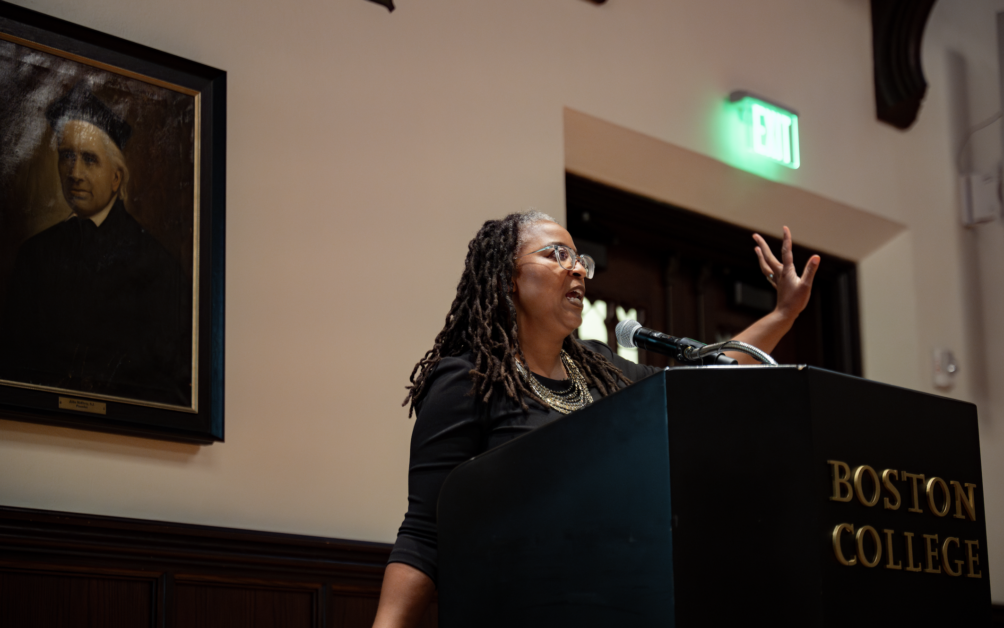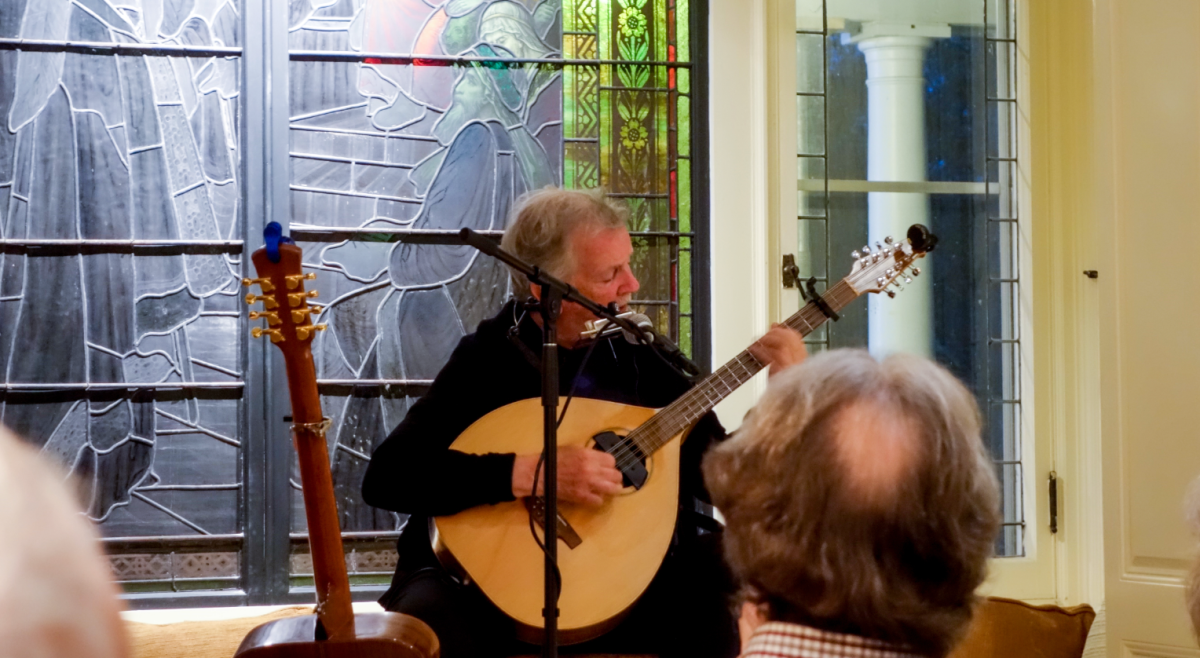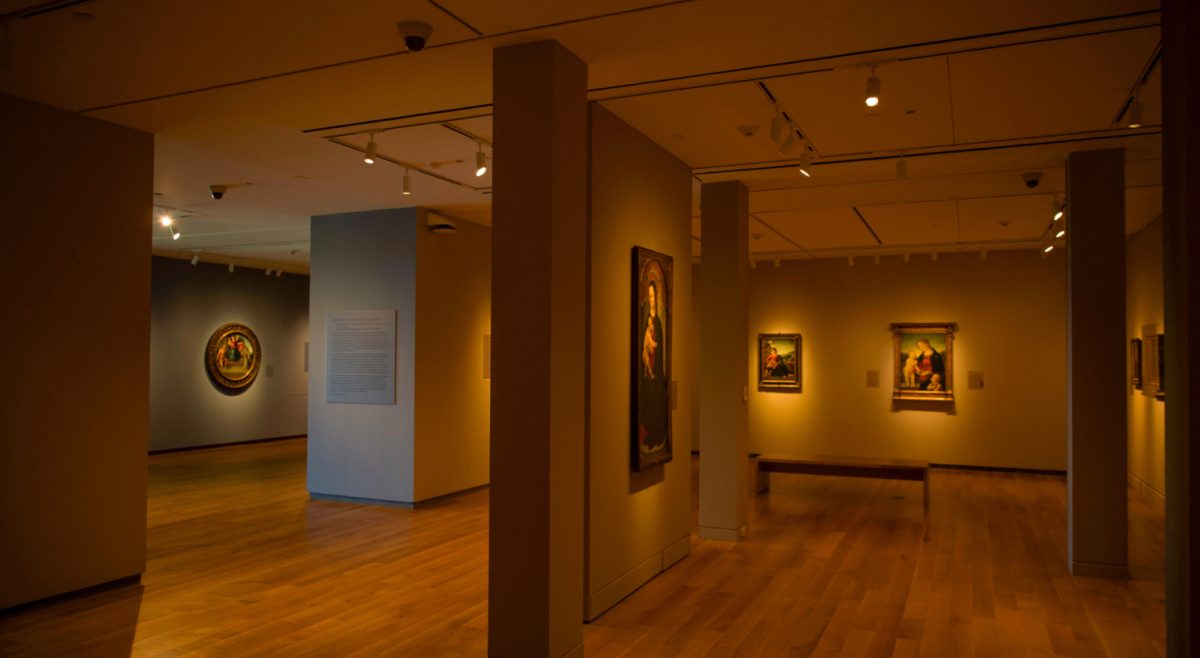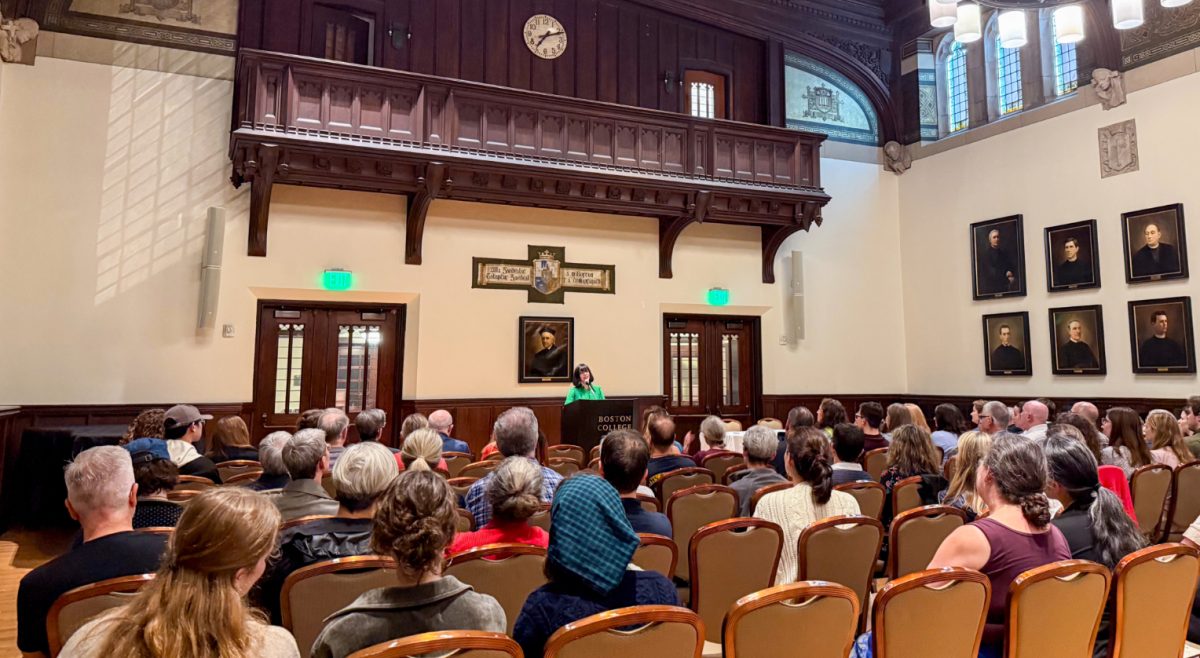What does it mean to understand Earth as a voice? Camille Dungy, decorated American poet, attempts to answer this question through her prolific work.
Dungy, a current professor at Colorado State, visited Boston College on Wednesday, Oct. 9, to speak about her most recent book, Soil: The Story of a Black Mother’s Garden, published in 2023. Soil is a memoir composed of prose, poetry, and art. It tells the story of Dungy’s journey as a Black woman in transforming her suburban backyard into a pollinator’s garden paradise against the backdrop of her all-white neighborhood.
The warm atmosphere and lively audience in Gasson 100 met its match in Dungy’s exuberance. She opened her presentation by cracking jokes, greeting audience members as if they were old friends. Dungy intertwined poetry and anecdotes throughout her speech, often switching seamlessly between the two.
She began her speech with a poem comparing a woman’s body to a willow tree. Then, she told the audience the story of how she wrote it. Dungy had been traversing from the MBTA’s Green Line to the Orange Line on a crisp October day when the words of the poem “came to her” suddenly.
Realizing that she had no notebook to write her words down in, the poet doggedly recited the lines in her head until she returned to her home in Cambridge where she could finally write it down.
“Always keep paper with you,” said Dungy.
This was her first piece of advice to the writers in the crowd.
Dungy then mentioned her time at BC, where she, a budding poet herself, taught students in the writing program. She said it was a wonderful learning experience for both her and her students, where she could teach a wide variety of English courses, ranging from Studies in Poetry to Introduction to Creative Writing.
After recounting her time teaching at BC, Dungy spoke about her experience living in Bath, England. Specifically, Dungy mentioned how music began to inspire her writing. She cited how a viewing of Mozart’s Requiem undid her writer’s block about a specific instance that had proved almost impossible for her to write about.
Dungy followed this anecdote with a reading of the poem, in its lines a reference to the very piece of music that inspired it.
Dungy read a few more poems following these stories, including “Frequently Asked Questions: 5” and “Characteristics of Life.” Both poems contain nature imagery and apply this imagery to different aspects of the human condition. Nature is a common theme that runs throughout Dungy’s poetry, as she often utilizes natural phenomena as a voice for human experience to speak through.
The question and answer portion of the presentation also brought valuable insight, especially into Dungy’s book Soil. She spoke about her desire for a diversified landscape within her property, and how the all-white neighborhood surrounding her was unsupportive of her pursuit of natural harmony.
Dungy also clarified that this project was meant to be mixed media as a reflection of the diversity of her garden, marking Dungy’s dedication to the form of her poems a furtherance of her message and a tool she often utilizes in her work.
Dungy ended with a final piece of advice for the writers and artists in the audience. When asked about how, as a writer, to clarify the audience one should be writing for, Dungy presented multiple pieces of advice.
First, she said writers should reject the perceived idea of what one’s audience will be. As in reality, the demographics and identities of one’s audience are diverse and often unpredictable. Dungy continued to urge writers to write their best work possible and then trust that the people who need that work will find it.
Dungy emphasized that she always tries to write with openness and grace. She also explained that she has allowed herself to change what her idea of her own “best work” is, and reminds herself that art is never static, earning a closing round of raucous applause.













